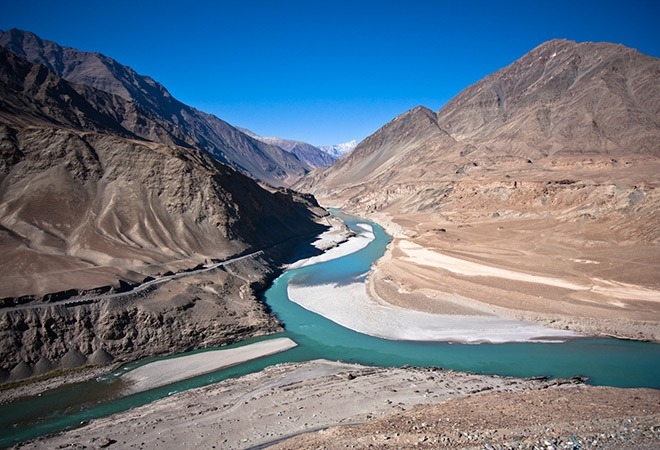Indian Minister of External Affairs Subrahmanyam Jaishankar holds talks with Austrian Foreign Minister Beate Meinl-Reisinger
India and Austria have issued a strong joint statement opposing nuclear blackmail during a diplomatic phone call, as tensions continue to rise between India and Pakistan in the wake of a deadly terror attack in Kashmir.
Indian Minister of External Affairs Subrahmanyam Jaishankar spoke with Austrian Foreign Minister Beate Meinl-Reisinger, congratulating her on her recent appointment and reaffirming both countries’ shared positions on terrorism and nuclear threats.
Following the conversation, Jaishankar posted on social media platform X, saying, “Appreciated the conversation today with Austrian FM @BMeinl. Congratulated on her appointment. Agreed on zero tolerance of terrorism and firm opposition to nuclear blackmail.”
During the call, the two leaders reviewed the status of bilateral relations between India and Austria and discussed ongoing global security issues, including the war in Ukraine. However, their united opposition to the use or threat of nuclear weapons stood out as a pointed message at a time of heightened military tensions in South Asia.
The conversation followed India’s military operation named “Operation Sindoor”, launched on 7 May in response to a deadly terror attack in Pahalgam, Jammu and Kashmir on 22 April. The operation targeted militant infrastructure across the Line of Control, including areas in Pakistan-administered Kashmir.
According to Indian defence sources, the strikes resulted in the deaths of over 100 individuals linked to militant groups including Jaish-e-Mohammed, Lashkar-e-Taiba, and Hizbul Mujahideen. The Indian Army described the action as a “precision campaign” against what it termed “terrorist launch pads”.
Following India’s offensive, Pakistan reportedly retaliated with cross-border shelling and drone incursions targeting areas in Jammu and Kashmir. Indian authorities said they responded with coordinated strikes, damaging radar systems, communications hubs, and air force infrastructure at multiple Pakistani bases.
The conflict marked one of the most significant escalations between the two nuclear-armed neighbours in recent years. It drew international concern over the possibility of a wider confrontation.
On 10 May, just days after the strikes and counterstrikes, both countries confirmed an understanding had been reached to cease hostilities. The announcement was seen as a move to de-escalate tensions and avoid further military engagement.
India’s engagement with Austria over the issue of nuclear blackmail comes amid global anxieties about the proliferation and use of nuclear threats in conflicts—notably the Russia-Ukraine war. Austria, a European Union member, has traditionally taken a strong stance against nuclear weapons and is a signatory of the Treaty on the Prohibition of Nuclear Weapons.
By aligning with Austria on this matter, India is signalling its commitment to non-proliferation norms even as it deals with complex regional security threats. While India has maintained a declared nuclear doctrine based on “No First Use”, tensions with Pakistan—another nuclear-armed state—have repeatedly raised concerns over potential miscalculations.
The joint opposition to nuclear coercion serves not only as a diplomatic message to Islamabad but also as a reaffirmation of India’s broader global partnerships. Austria’s support could be strategically important as India seeks to reinforce its international image as a responsible nuclear power.
The inclusion of the Ukraine conflict in the bilateral discussion further underscores the evolving nature of India’s foreign policy, which increasingly integrates regional and global security issues in its diplomatic agenda. As both countries continue to deepen ties, their shared positions on key security concerns reflect a convergence of values amid an increasingly volatile international landscape.
Earlier, Jaishankar held telephonic conversation with his Australian counterpart Penny Wong and congratulated her on her reappointment as Australia’s Foreign Minister. The two leaders discussed recent developments and the importance of zero tolerance against terrorism.
Jaishankar said he looked forward to further strengthening the multifaceted “Dosti” between India and Australia.
In a post on X, Jaishankar stated, “Good to talk to @SenatorWong of Australia. Extended warm congratulations on her reappointment. Discussed recent developments and the importance of zero tolerance against terrorism. Look forward to further strengthening the multifaceted India-Australia Dosti.”
Wong’s reappointment as Australia’s foreign minister comes after Australian Prime Minister Anthony Albanese secured victory in the elections. Albanese has unveiled his ministers for the second term and named former communications minister Michelle Rowland as attorney-general after Mark Dreyfus was removed from the front bench due to factional negotiations.














